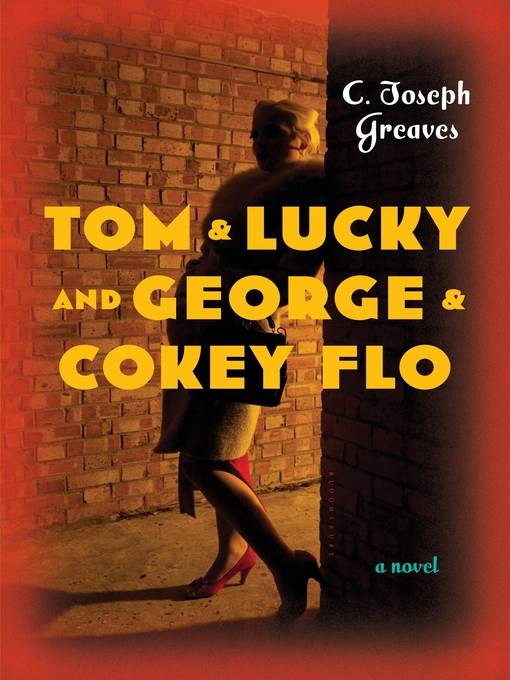
Tom & Lucky (and George & Cokey Flo)
A Novel
کتاب های مرتبط
- اطلاعات
- نقد و بررسی
- دیدگاه کاربران
نقد و بررسی

October 1, 2015
On May 13, 1936, a trial began in New York City that pitted the talents of Manhattan special prosecutor Thomas E. Dewey against those of defense attorney George Morton Levy; this celebrated case against Charles "Lucky" Luciano would rocket Dewey to celebrity status and eventually help him become governor of New York. Four weeks later Luciano was found guilty of some 90 counts of compulsory prostitution, his conviction aided in large part by the testimony of onetime madam Cokey Flo Brown. Focusing on these four characters, Greaves (Hard Twisted) adeptly threads back to the early years of their respective careers in justice and crime to provide readers with a behind-the-scenes portrayal of the circumstances that led to the climactic point at which their lives briefly intersected. The book begins in 1914, taking readers through the trial and its immediate aftermath with the precision of a historical account and the sensitivity of character-driven fiction. VERDICT Legal thriller and true crime readers alike will appreciate the results of Greaves's formidable efforts.--Nancy McNicol, Hamden P.L., CT
Copyright 2015 Library Journal, LLC Used with permission.

September 21, 2015
In this historical crime novel, Greaves (Hard Twisted) sets four real-life Jazz Age figures on a collision course. We witness Sicilian immigrant Salvatore Lucania becoming New York mobster legend Charlie “Lucky” Luciano; Nassau County lawyer George Morton Levy growing a reputation for being a peerless defense attorney; ambitious Thomas E. Dewey being named special prosecutor for New York County, with an eye on the governor’s mansion; and Cokey Flo Brown, a grifter, madame, and heroin addict, running a brothel in New York City. After a long preamble, the story settles down in 1936, when Dewey tries to use Cokey Flo’s testimony to bust Luciano, who hires Levy for his defense. The novel begins with cinematic scenes that crisply encapsulate the personalities of its four main characters. But in relating so much early mob history, the author seems to be merely recycling elements already familiar from The Cotton Club and Boardwalk Empire. And once Luciano’s trial gets underway, the narrative becomes much too reliant on actual court transcripts. The trial itself is not especially dramatic and ends on an anticlimactic note, which buries the author’s thesis: that the verdict was ultimately based on Luciano and Dewey switching roles, with the former acting like a gentleman in court and the later making like a gangster behind the scenes. There are some flashes of snappy dialogue, and the setting is nicely evoked, but the writing is too flat and never fully takes off.

September 1, 2015
A novel of mobsters, madams, and manipulative lawyers in 1930s New York. Greaves, who when using "Chuck" as his byline specializes in hard-boiled legal thrillers set in Southern California, publishes under his statelier moniker this fact-based, multilayered historical novel about the 1936 trial of Salvatore Lucania, aka Charles "Lucky" Luciano, the most powerful crime boss in America, who was charged with, and later convicted on, 62 counts of compulsory prostitution. The aforementioned layers are separate narratives, each with a distinctive tone and point of view, which are woven together to show how the destinies of four very different, driven people converged at that trial and were, to varying degrees, transformed by it. Chief among them is "Charlie Lucky" himself, who achieves his reputation-and his nickname-through a potent combination of hooded-eyed menace, coldblooded pragmatism, and an implacable aptitude for survival. Such gifts enable Luciano to outlast and outwit any and all challengers to his unofficial title of "boss of bosses" until he meets his most formidable (and unlikely) foe: Thomas E. Dewey, the young, prim, baritone-voiced special prosecutor, whose ruthless pursuit of Luciano's conviction, if successful, could propel him to the governor's mansion-and, quite possibly, beyond. Opposing Dewey is Luciano's lawyer, George Morton Levy, an astute Long Island litigator whose meticulousness in preparation is often countered by a gambler's attraction to the big risk. ("I never seem to know when to quit while I'm ahead," he confesses to a colleague after a rare loss.) Last and certainly not least is one of the prosecution's star witnesses: Cokey Flo Brown, a heroin addict and recidivist prostitute, who, despite showing the physical and emotional effects of a rough-and-tumble life, "is brassy and shrewd, with a wharf rat's instinct for self-preservation." Hers is the testimony that turns the tide against Luciano to the point where Levy reluctantly lets his client testify on his own behalf, "with foreseeably disastrous results" Greaves' impressive research illuminates many aspects of this long-ago legal spectacular. Yet he achieves his most telling effects with his imaginative renderings of the eponymous quartet-especially Lucky and Cokey Flo, though you wish there were some more of George.
COPYRIGHT(2015) Kirkus Reviews, ALL RIGHTS RESERVED.

























دیدگاه کاربران